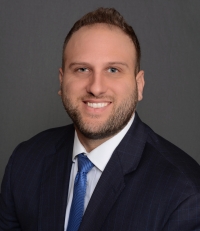![]()
Collaborative approach with clients' working group
![]()
Practical, cost-efficient solutions to complex legal issues
![]()
Accessibility and responsiveness unique to suburban practice
![]()
Relationship-driven
client service
Tax
What is the difference between a corporation and an LLC?
There are a number of differences between a corporation and an LLC. There are also several different types of corporations. The differences affect how the company is taxed, how it operates, who can be a shareholder and a variety of other factors that are specific to each business. We would be happy to talk with you to discuss these differences as they relate to your business and help you decide what form your company should take.
What is a buy-sell agreement?
A "buy-sell" agreement is the name given to the document that is intended to set forth the exit plan for shareholders or partners. A well written document will provide specific direction for an equity holder who needs to disentangle him or herself long before the only options are retirement, bankruptcy or an expensive business divorce.
The document will determine: if the exit or decision to cease operations has to be unanimous; if a purchase by co-shareholder or co-partner is required; how long a disabled shareholder or partner has to be carried; if a spouse or other family member can inherit an equity interest in the event of death of a shareholder or partner; and, if a transfer of equity to a third party is permitted without the consent of the surviving shareholder or partner. The decision to exit, or need to see your co-shareholder or co-partner exit, may not be voluntarily. If discussed and planned before the fact, it doesn't also have to be messy.
Business & Finance
Should I incorporate my new business? What are the advantages of doing this and how much will it cost?
If you are now running your business as a sole proprietor, incorporating your business will give you many protections not currently legally available to you. Chief among these protections are the protection of your personal assets, like your home, from confiscation by your business creditors. If we were to handle this for you, the cost of a simple incorporation or organization of a limited liability partnership or company would be around $1,000, which would include your Articles of Incorporation and By-laws or Certificate of Organization, Opening Minutes and filings with the state.
What is a buy-sell agreement?
A "buy-sell" agreement is the name given to the document that is intended to set forth the exit plan for shareholders or partners. A well written document will provide specific direction for an equity holder who needs to disentangle him or herself long before the only options are retirement, bankruptcy or an expensive business divorce.
The document will determine: if the exit or decision to cease operations has to be unanimous; if a purchase by co-shareholder or co-partner is required; how long a disabled shareholder or partner has to be carried; if a spouse or other family member can inherit an equity interest in the event of death of a shareholder or partner; and, if a transfer of equity to a third party is permitted without the consent of the surviving shareholder or partner. The decision to exit, or need to see your co-shareholder or co-partner exit, may not be voluntarily. If discussed and planned before the fact, it doesn't also have to be messy.
Estates & Trusts
- What is Estate Planning?
- Do I need a Will?
- What is Non-Probate Property?
- What is a Durable Power of Attorney?
- What is a Living Will?
- What is a Revocable Living Trust? Do I Need One?
What is Estate Planning?
Estate planning is a process involving the counsel of professional advisors who are familiar with your goals and concerns, your assets and how they are owned, and your family structure. It can involve the services of a variety of professionals, including your lawyer, accountant, financial planner, life insurance advisor, banker and broker. The objective is to develop a plan for the passage of assets during life and at death (an “Estate Plan”).
The Estate Plan is a written expression, through a variety of legal documents, as to the transfer of property during life and at death, and often involves tax planning. The core legal document most often associated with this process is your Last Will & Testament (your “Will”). A Durable Power of Attorney and a Living Will are legal documents that are generally part of most estate plans as well. These documents, and others, are described in greater detail under separate FAQs.
Download our Estate Planning Fact Sheet
The form is designed to elicit information that is pertinent to the development of an estate plan. Please contact Antheil Maslow & MacMinn, LLP if you have any questions on the form. If you would like our Firm to assist you with your estate planning, simply contact our office to set up an appointment with one of our estate planning attorneys.
Do I need a Will?
If you die without a Will (“intestate”), the laws of descent and distribution in the state of your domicile Will determine who receives your property by default. These laws vary from state to state, but typically the distribution would be to your spouse and children, or, if none, to other family members. A state's plan reflects the legislature's guess as to how most people would dispose of their estate and builds in protections for certain beneficiaries, particularly minor children and spouses. That plan may or may not reflect your actual wishes, and some of the built-in protections may not be necessary in a harmonious family setting. A Will allows you to alter the state's default plan to suit your personal preferences.
A Will provides for the distribution of property owned by you at the time of your death in any manner you choose (subject to the forced heirship laws of some states that prevent disinheriting a spouse and, in some cases, children). Your Will cannot, however, govern the disposition of properties that pass outside your probate estate (such as certain joint property, life insurance, retirement plans and employee death benefits -- so-called “non-probate property”) unless such assets are made payable to your estate.
Wills can be of various degrees of complexity and can be utilized to achieve a wide range of family and tax objectives. If a Will provides for the outright distribution of assets, it is sometimes characterized as a simple Will. If the Will establishes one or more trusts, it is often called a Testamentary Trust Will. Alternatively, the Will may leave probate assets to a preexisting intervivos trust (created in your lifetime), in which case it is sometimes called a “Pour Over” Will. In either case, the purpose of the trust arrangement (as opposed to outright distribution) is generally to ensure continued property management and creditor protection for the surviving family members, to provide for charities, and/or to minimize taxes.
Aside from providing for the intended disposition of your property to spouse, children etc., there are a number of other important objectives that may be accomplished in your Will, including:
- You may designate a guardian for your minor child or children if you have survived the other parent, and, by judicious use of a trust and appointment of a trustee, eliminate the need for bonds and supervision by the court regarding the care of each minor child's estate.
- You may designate an executor of your estate in your Will and eliminate the need for a bond; in some states the designation of an independent executor will eliminate the need for court supervision of the settlement of your estate.
- You may choose to acknowledge or otherwise provide for a child (e.g., stepchild, godchild,etc.) in whom you have an interest, an elderly parent, or other individuals.
- If you are acting as custodian for the assets of a child or grandchild under the Uniform Gift (or Transfers) to Minors Act, you may designate your successor custodian and avoid the expense of a court appointment.
- Good planning can also enhance your support of religious, educational, and other charitable causes.
A Will does not govern the transfer of certain types of assets, called non-probate property, which by operation of law or contract pass to someone else on your death. (See FAQ relating to non-probate property.)
Wills are generally to be signed in the presence of witnesses, and certain formalities should be observed. A later amendment to a Will is called a codicil and must be signed with the same formalities. In some states, the Will may refer to a memorandum disposing of tangible personal property, such as furniture, jewelry, automobiles, etc., which may be changed from time to time without the formalities of a Will. In Pennsylvania, a Will that is formally executed with the testator’s and witnesses’ signatures notarized is deemed to be self proved and may be admitted to probate without testimony of witnesses or other additional proof.
What is Non-Probate Property?
There are many types of property that do not pass under your Will, unless you make such assets payable to your estate. It is important to coordinate the passage of such assets, especially where non-probate assets make up a large part of your overall estate. Following is a review of non-probate assets:
Jointly Owned Property with Right of Survivorship
If you own property with another person as joint tenants with right of survivorship, that is, not as tenants in common, the property will pass directly to the remaining joint tenant upon your death and will not be a part of your probate estate. (It will, however, be a part of your taxable estate.) Frequently, people (particularly in old age) will cause bank accounts or securities to be placed in the name of the owner with one or more children or trusted friends as joint tenants with right of survivorship. This is sometimes done as a matter of convenience to give the joint tenant continuing access to accounts to pay bills.
It is important to realize that the ownership of property in this fashion often leads to unexpected or unwanted results. Disputes, including litigation, are common between the estate of the original owner and the surviving joint tenant as to whether the survivor's name was added as a matter of convenience and/or management or whether a gift was intended. The planning built into a well-drawn Will may be partially or completely thwarted by an inadvertently created joint tenancy that passes property to a beneficiary by operation of law, rather than under the terms of the Will.
Many of these problems are also applicable to institutional revocable trusts and "pay on death" forms of ownership of bank, broker, and mutual fund accounts and savings bonds. Effective planning requires knowledge of the consequences of each property interest and technique.
Trusts
The term trust describes the holding of property by a trustee (which may be one or more persons or a corporate trust company or bank) in accordance with the provisions of a written trust instrument for the benefit of one or more persons called beneficiaries. A person may be both a trustee and a beneficiary of the same trust. A trust created by your Will is called a testamentary trust and the trust provisions are contained in your Will.
If you create a trust during your lifetime, you are described as the trust's grantor or settlor, the trust is called a living or inter vivos trust, and the trust provisions are contained in the trust agreement or declaration. The provisions of that trust document (rather than your Will or state law defaults) will usually determine what happens to the property in the trust upon your death.
A living trust may be revocable (subject to change and termination by the settlor) or irrevocable. Either type of trust may be designed to accomplish the purposes of property management, assistance to the settlor in the event of physical or mental incapacity, and disposition of property after the death of the settlor of the trust.
Trusts are not only for the wealthy. Many young parents with limited assets choose to create trusts either during their lives or in their Wills for the benefit of their children in case both parents die before all their children have reached an age deemed by them to indicate sufficient maturity to handle property. This permits the trust estate to be held as a single undivided fund to be used for the support and education of minor children according to their respective needs, with eventual division of the trust among the children when the youngest has reached a specified age. This type of arrangement has an obvious advantage over an inflexible division of property among children of different ages without regard to their level of maturity or individual needs at the time of such distribution.
Annuities and Retirement Benefits
You may be entitled to receive some type of retirement benefit under an employee benefit plan offered by your employer or have an Individual Retirement Account (IRA). Typically, a deferred compensation or retirement benefit plan will provide for the payment of certain benefits to beneficiaries designated by the employee in the event of the employee's death before retirement age. After retirement, the employee may elect a benefit option that will continue payments after his or her death to one or more of the designated beneficiaries. Certain spousal annuities are now mandated by law and may be waived only with the spouse's properly witnessed signed consent. The various payment options will be treated differently for tax purposes.
Any person entitled to retirement benefits should seek competent advice as to the payment options available under his or her retirement plan and the tax consequences of each. The income and estate tax consequences surrounding such assets are very complex.
Life Insurance
If you own life insurance on your own life, you may either:
- designate one or more beneficiaries to receive the insurance proceeds upon your death, or
- make the proceeds payable to your probate estate or to a trust created by you during your lifetime or by your Will.
If the insurance proceeds are payable to your estate, they will be distributed as part of the general estate in accordance with the terms of your Will, or, if you die without a Will, the distribution will be according to the applicable laws of intestate succession. If the proceeds are payable to a trust, they will be held and distributed in the same manner as other trust assets and may also be free of creditors' claims. Insurance proceeds that are payable directly to a minor child will generally necessitate the court appointment of a legal guardian or conservator. This can be avoided by having a trust designated as beneficiary or a custodial account under the state’s Transfers-to-Minors law.
Insurance plays an important role in estate planning and should be coordinated with all other aspects of your estate plan. The laws pertaining to the taxability of insurance proceeds are complex, however, so it is important that all matters pertaining to life insurance be carefully reviewed with your attorney and insurance advisor.
What is a Durable Power of Attorney?
You may designate a friend or relative to act on your behalf under a power-of-attorney, which can be specific and limited to a certain task or transaction or may be broad and general and allow the power holder to do almost anything in your best interest. All states provide that a properly drafted power-of-attorney will be effective even after the disability or incapacity of the person who gave the power (a so-called “durable power of attorney”), and indeed that has become a primary reason to create powers-of-attorney.
The power-of-attorney can also prevent problems that arise when the name of another person is added as a joint tenant (or other form of co-owner) to a bank account or other asset as a matter of convenience.
What is a Living Will?
A Living Will is a legal document that expresses your intention not to be kept alive by artificial means, or by heroic measures. This document should be executed only if you feel comfortable making such a declaration. The document generally also contains the appointment of someone to make medical decisions for you if you are unable, commonly referred to as a health care power of attorney.
What is a Revocable Living Trust? Do I Need One?
The term "living trust" (also known as a "revocable trust" or "inter vivos trust") is generally used to describe a trust (a) which you can create during your lifetime, and (b) which you can revoke or amend whenever you wish. Much has been written recently regarding the use of living trusts as a solution for a wide variety of problems associated with estate planning through Wills.
The benefits of living trusts are often greatly overstated, especially in jurisdictions (like Pennsylvania) where the probate of a Will is not an expensive or complicated process. One of the common misperceptions of living trusts is that they will help to avoid taxes. A revocable living trust will not accomplish any tax savings. An "irrevocable" living trust, that is permanent, unchangeable, and outside the control of its creator, is created almost exclusively to produce certain tax results for the wealthiest of people.
A living trust is legally in existence during your life, has a trustee who is currently serving, and owns property that you have transferred to it during your life. While you are living, the trustee (who may be you) is generally responsible for managing the property as you direct for your benefit. Upon your death, the trustee is generally directed to either distribute the trust property to your beneficiaries, or to continue to hold it and manage it for the benefit of your beneficiaries.
Like a Will, a living trust can provide for the distribution of property upon your death. Unlike a Will, it can also (a) provide you with a vehicle for managing your property during your life, and (b) authorize the trustee to manage the property and use it for your benefit (and your family) if you should become incapacitated, thereby avoiding the appointment of a guardian for that purpose.
Some of the more common instances where the creation and funding of a revocable living trust is appropriate include:
- If you own real estate outside of your state of domicile
- If you have a domicile in states where the probate process is cumbersome and expensive (e.g., New York, California, and Florida)
- If you are likely to move from state to state
- If you feel it is appropriate to have a fiduciary manage your assets
Legal Resources
General Legal Resources
 American Bar Association
American Bar Association
Federal Rules of Evidence
Federation of Defense and Corporate Counsel
FindLaw
Legal Ethics.com
Law and Politics Internet Guide
US Code
Pennsylvania Legal Resources
Bucks County
Bucks County Bar Association
Insurance Society of Philadelphia
Jenkins Law Library
Montgomery County
Pennsylvania Bar Association
Pennsylvania Bar Institute
Pennsylvania Court and State Resources
Pennsylvania Courts
The Pennsylvania Manual on Line
Pennsylvania Association for Justice
Philadelphia Bar Association
Philadelphia Lawyer
Superior Court of Pennsylvania
Supreme Court CLE Board
United States Bankruptcy Court for the Eastern District of Pennsylvania
United States District for the Eastern District of Pennsylvania
Federal Government Resource Links
Bureau of Labor Statistics
The Embassy Page
Fedworld Home Page
IRS - The Digital Daily: Income Tax Forms, Instructions, etc.
New Jersey
Pennsylvania
The SEC's EDGAR database: annual stock Reports, 10Ks, etc.
The United States House of Representatives
The United States Senate
Welcome to the White House
More...
Articles & Presentations
Antheil Maslow & MacMinn, LLP Hires Timothy M. White as New Associate
Antheil Maslow & MacMinn, LLP Hires Timothy M. White as New Associate
 DOYLESTOWN, Pennsylvania (September 30, 2008) Antheil Maslow & MacMinn, LLP, a Bucks County-based full-service law firm, announced the addition of Timothy M. White as an Associate to the Firm. White will concentrate his practice in the areas of taxation, estate planning, business transactions, and litigation. He earned his Estate Planning Certificate from Temple University School of Law Graduate Tax Program, and is currently pursuing an LL.M. in Taxation. He received a B.A. from Michigan State University, and obtained his J.D. last year from Temple University School of Law. White is a member of the American, Pennsylvania and Bucks County Bar Associations.
DOYLESTOWN, Pennsylvania (September 30, 2008) Antheil Maslow & MacMinn, LLP, a Bucks County-based full-service law firm, announced the addition of Timothy M. White as an Associate to the Firm. White will concentrate his practice in the areas of taxation, estate planning, business transactions, and litigation. He earned his Estate Planning Certificate from Temple University School of Law Graduate Tax Program, and is currently pursuing an LL.M. in Taxation. He received a B.A. from Michigan State University, and obtained his J.D. last year from Temple University School of Law. White is a member of the American, Pennsylvania and Bucks County Bar Associations.
Prior to becoming an attorney White worked for several Fortune 500 corporations, and while at Temple University School of Law he represented clients through the Small Business Development Center, was Associate Editor of the International Comparative Law Journal, and was involved with numerous student organizations. His latest position prior to joining the Firm was as Law Clerk to the Honorable Albert J. Cepparulo in the Bucks County Court of Common Pleas. Said White about joining Antheil Maslow & MacMinn, LLP, “Through my association with the Estate Planning Council, I got to know a number of attorneys from AMM and learned that they had a real group dynamic. I am pleased to be a part of the AMM team.”
Attorney Profiles
- William L. Antheil, III
- Lisa A. Bothwell
- Janel Clause
- Patricia C. Collins
- Jennifer Dickerson
- Thomas P. Donnelly
- Elizabeth J. Fineman
- Lynelle Gleason
- William T. MacMinn
- Susan A. Maslow
- Michael W. Mills
- Gabriel T. Montemuro
- Joanne M. Murray
- Jonathan A. Onufrak
- Jocelin A. Price
- Jessica A. Pritchard
- Peter J. Smith
- Megan Weiler
- Adam M. Weiss
- Melanie J. Wender
- Elaine T. Yandrisevits
- Stephen M. Zaffuto
William L. Antheil, III
Partner
215-230-7500, ext. 113
wantheil@ammlaw.com
Practice Groups
Education
- New York University, LL.M., Taxation, 1972
- Dickinson School of Law, J.D., 1968
- Denison University, B.A., 1965
Bar Admissions
- Pennsylvania
- Florida
- Texas
- pUNE
Susan A. Maslow
Partner
215-230-7500, ext. 119
smaslow@ammlaw.com
Practice Groups:
Education
- Temple University, J.D., cum laude, 1982
- Rutgers University, B.A., 1978
- Sorbonne, University of Paris, Degree Superior, 1977
Bar Admissions
- Pennsylvania
- New Jersey


























